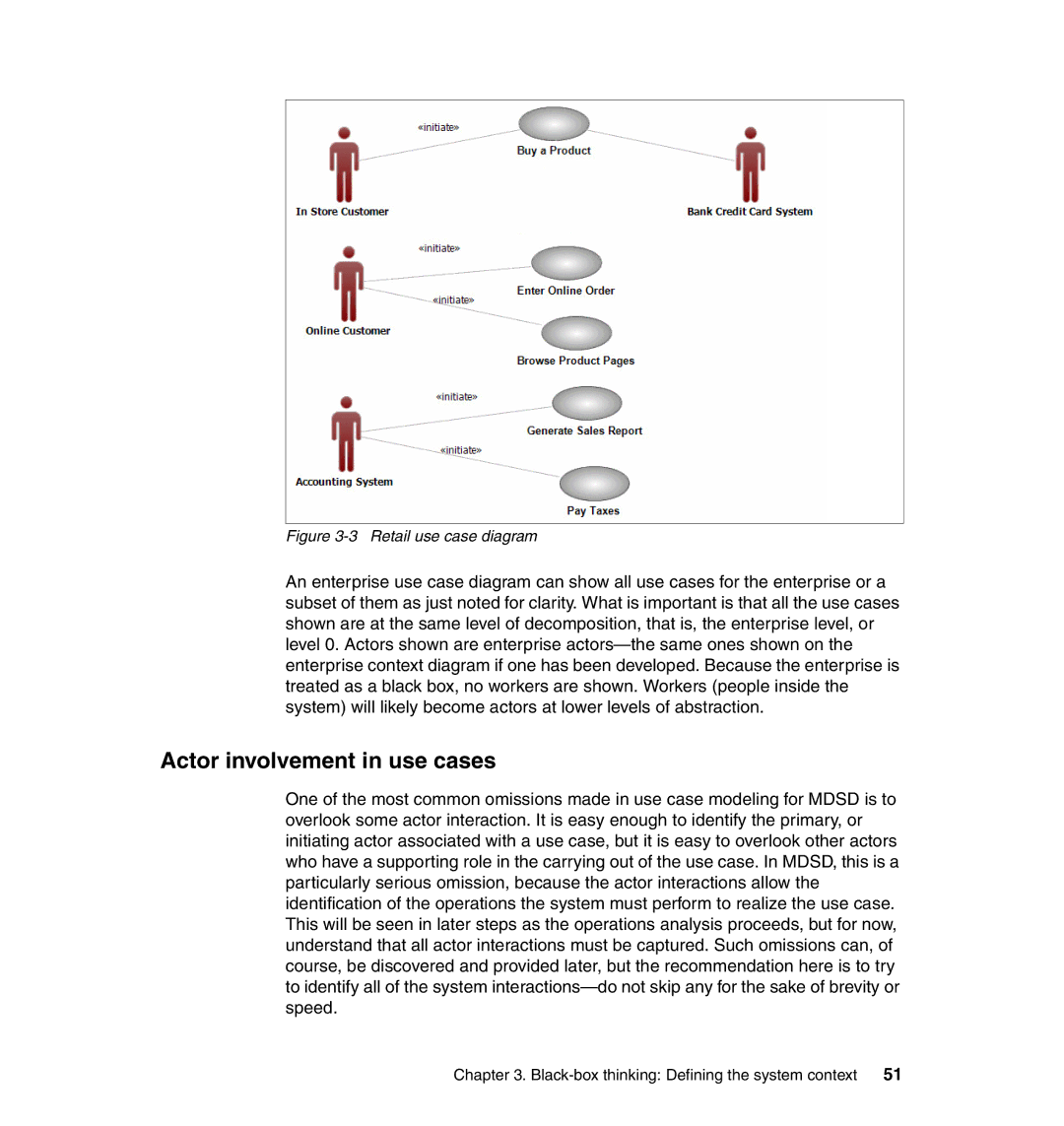
Figure 3-3 Retail use case diagram
An enterprise use case diagram can show all use cases for the enterprise or a subset of them as just noted for clarity. What is important is that all the use cases shown are at the same level of decomposition, that is, the enterprise level, or level 0. Actors shown are enterprise
Actor involvement in use cases
One of the most common omissions made in use case modeling for MDSD is to overlook some actor interaction. It is easy enough to identify the primary, or initiating actor associated with a use case, but it is easy to overlook other actors who have a supporting role in the carrying out of the use case. In MDSD, this is a particularly serious omission, because the actor interactions allow the identification of the operations the system must perform to realize the use case. This will be seen in later steps as the operations analysis proceeds, but for now, understand that all actor interactions must be captured. Such omissions can, of course, be discovered and provided later, but the recommendation here is to try to identify all of the system
Chapter 3. | 51 |
